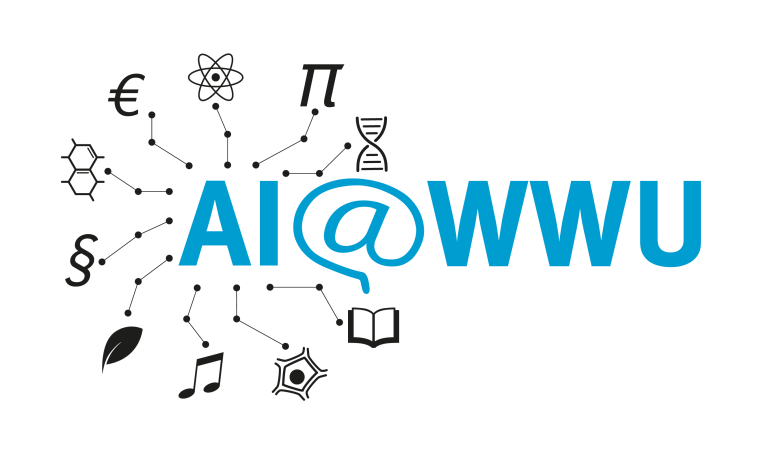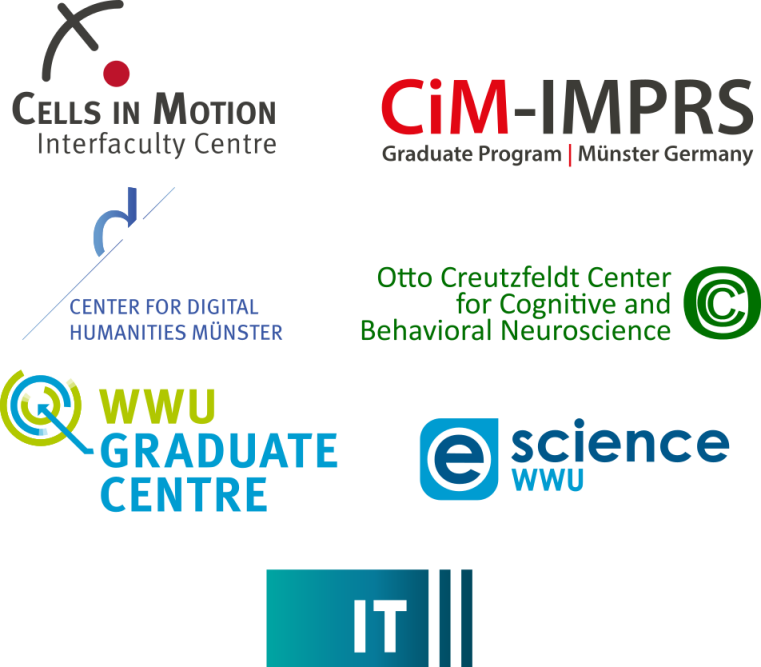AI@WWU — A Practical Introduction to AI Theory and Techniques for Interdisciplinary Research
IMPORTANT NOTES:
- The course is already fully booked. However, please register on the waiting list so that we can estimate the demand consider possible alternatives in case of high interest.
- The start of this course has been postponed according to the guidelines of the university in order to slow the spread of COVID-19 (see official information here...).
- The Workshop will start on the 29.06. at 4pm via Zoom. Log-in details will be send to the registered users directly.

Short Summary:
AI and in particular machine learning (ML) tools become more and more accessible due to easy to use programming environments (esp. Python) and libraries (esp. Tensorflow and Pytorch). In order to apply these powerful tools for a variety of research projects, some basic understanding is required to tackle data preparation, visualisation and successful ML algorithm usage. In this course we will (1) teach AI and machine learning basics (70% of the course) and (2) apply these techniques to custom problems and custom data provided by the participants (30% of the course). In particular, we will introduce several state of the art deep learning algorithms like CNNs, LSTMs and Autoencoder. The entire course will be interactive and the participants will implement and use all presented techniques in pre-configured test environments. To get in touch write an email to ai@wwu.de.



